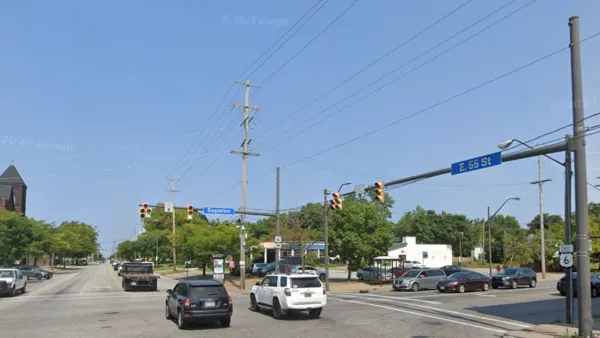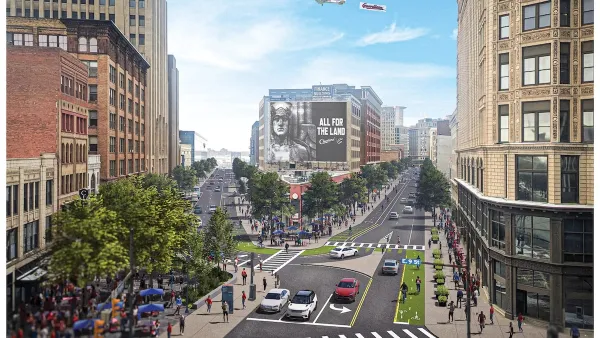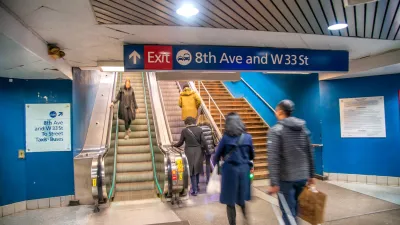G.M. Donley pens an impassioned plea to reject "ready made" narratives about the decline of Cleveland Heights, an inner suburb of Cleveland, after the murder of local bar and restaurant owner Jim Brennan.
After the "awful murder last Monday of Jim Brennan, owner of the Colony restaurant and bar on Lee Road in Cleveland Heights," writes Donley, "the tone of the public discourse that followed was charged with [the] themes…that somehow Cleveland Heights had brought this upon itself."
The "ready made narrative" in this case is that the residents of Cleveland Heights, according to Donley's analysis of commenters in the media, brought this upon themselves by sacrificing the isolation of "defensible enclaves" for the "common ground in community" and "vibrant street life."
Donley's case is that takeaway from the tragic incident should not be an indictment of Cleveland Height's urbanism: "the real wake-up call to me is how this incident threw into the light of day how ready-made narratives about 'how things are' and 'how things used to be' continue to undermine the strength of the region."
In fact, ready made narratives are just as easily forced on to suburbs located farther from the city center: "the ready-made narrative for outer-suburban places is more like what we heard in the aftermath of the Columbine shootings in Colorado: suburban cul-de-sac social alienation comes to roost in the abhorrent acts of disaffected young men."
And the final, passionate call to action: "So instead of swallowing a ready-made narrative about us, we need to write our own story for how this region will thrive. For that to story to unfold, we need the city centers to rebound, the inner-ring places to retain their dense and leafy flavor, the outer-ring places to become more sustainable, and the surrounding countryside to teem with agricultural production and natural beauty."
FULL STORY: Cleveland Heights and the Problem with "Used to Be"

Maui's Vacation Rental Debate Turns Ugly
Verbal attacks, misinformation campaigns and fistfights plague a high-stakes debate to convert thousands of vacation rentals into long-term housing.

Planetizen Federal Action Tracker
A weekly monitor of how Trump’s orders and actions are impacting planners and planning in America.

In Urban Planning, AI Prompting Could be the New Design Thinking
Creativity has long been key to great urban design. What if we see AI as our new creative partner?

King County Supportive Housing Program Offers Hope for Unhoused Residents
The county is taking a ‘Housing First’ approach that prioritizes getting people into housing, then offering wraparound supportive services.

Researchers Use AI to Get Clearer Picture of US Housing
Analysts are using artificial intelligence to supercharge their research by allowing them to comb through data faster. Though these AI tools can be error prone, they save time and housing researchers are optimistic about the future.

Making Shared Micromobility More Inclusive
Cities and shared mobility system operators can do more to include people with disabilities in planning and operations, per a new report.
Urban Design for Planners 1: Software Tools
This six-course series explores essential urban design concepts using open source software and equips planners with the tools they need to participate fully in the urban design process.
Planning for Universal Design
Learn the tools for implementing Universal Design in planning regulations.
planning NEXT
Appalachian Highlands Housing Partners
Mpact (founded as Rail~Volution)
City of Camden Redevelopment Agency
City of Astoria
City of Portland
City of Laramie





























